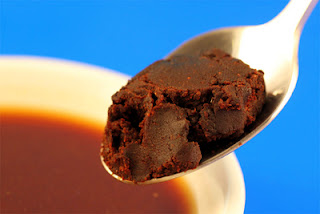Plants have sufficient protein to grow giraffes, elephants, and cows, so obviously they have enough to grow relatively small people - please CLICK to Tweet.
All twenty amino acids, including the 10 essential ones, needed for good health are abundant in plants.
In real life there is no such thing as protein deficiency, provided you eat enough food in general, yet the meat and dairy industries generate huge profit with these universally accepted myths.
It is very easy to achieve these targets, for example:
- A large egg contains 6 g protein
- 2 slices of bread contain 6 g protein
- 6 fl oz (170ml) milk contains 6 g protein
- 100g (4oz) chickpeas contains 16 g protein
- A tin of tuna contains 20 g protein
- 100g (40z) tofu contains 20 g protein
- 170g (6oz) beef contains 40 g protein
The last National Diet and Nutrition Survey in the UK showed that average protein consumption is at least 1.5 times higher, and often 2-4 times higher, than the recommended amounts.
There is evidence that protein significantly in excess of our bodily needs may be damaging to our health, though further research is needed on this.
Animal protein and vegetable protein per se probably have similar effects on health. It's the protein package that's likely to make a difference.
A 6-ounce steak is a great source of protein—38 grams worth. But it also delivers 44 grams of fat, 16 of them saturated. That's almost three-quarters of the recommended daily intake for saturated fat.
The same amount of salmon gives you 34 grams of protein and 18 grams of fat, 4 of them saturated.
A cup of cooked lentils has 18 grams of protein, but under 1 gram of fat.
So when choosing protein-rich foods, pay attention to what comes along with the protein.
Vegetable sources of protein, such as beans, nuts, and whole grains, are excellent choices, and they offer healthy fibre, vitamins and minerals.
If you like the idea of a plant-based diet but cannot fully give up eating meat and other other animal products, you can try to reduce your intake gradually, whilst increasing the number of vegetables dishes you eat.
You can also pay attention to the type of animal products you consume and the balance between them.
The best animal protein choice is oily fish. Next best is poultry. If you are partial to red meat, stick with the leanest cuts, choose moderate portion sizes, and make it only an occasional part of your diet.
Tips for choosing the best protein packages:
- Mix it up. Most reasonable diets provide enough protein for healthy people. Eating a variety of foods will ensure that you get all of the amino acids you need.
- Go low on saturated fat. Beans and oily fish provide plenty of protein, without much saturated fat. Steer clear of fatty meats and use whole-milk dairy products sparingly or preferably not at all.
- Limit red meat—and avoid processed meat. Research suggests that people who eat more than 18 ounces a week of red meat have a higher risk of colon cancer. So make red meat—beef, pork, lamb—only an occasional part of your diet, if you eat it at all. Skip the processed stuff—bacon, hot dogs, and deli meats—since that's also been linked to higher cancer risk.
- Eat soy in moderation. Tofu and other soy foods are an excellent red meat alternative, but don't go overboard; 2 to 4 servings a week is a good target. Stay away from supplements that contain concentrated soy protein or extracts, such as isoflavones, as we just don't know the long term effects
- Balance carbohydrates and protein. Cutting back on highly processed carbohydrates and consuming unprocessed carbohydrates in the form of whole grains and vegetables helps to maintain a healthy balance between protein and carbohydrate in your diet. Eating such foods helps to regulate blood sugar, lower 'bad' cholesterol and and levels of blood triglycerides, thus reducing your chances of having a heart attack, stroke, or other form of cardiovascular disease. It will also make you feel full longer, and help to stave off hunger pangs.
For an excellent discussion of some of the myths about protein in the diet please see John McDougall MD's newsletter.
If you have enjoyed this post and would like to
keep in touch please sign up for my free email newsletter.



















